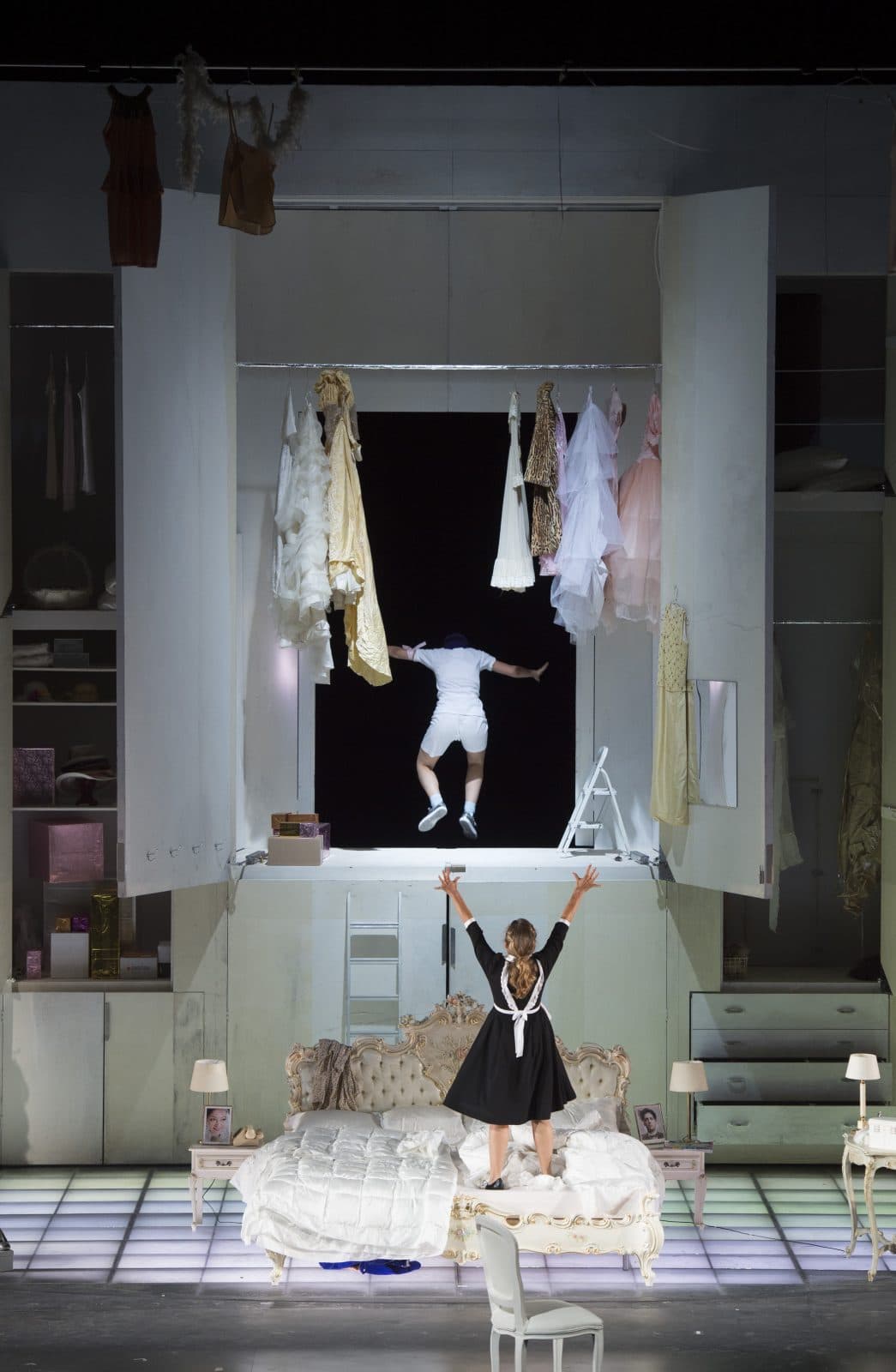It is a relief that German director David Bösch's libretto of Le nozze di Figaro of Mozart did not put a postmodern spin on it, if necessary to showcase his own genius. This time no addicts, men in battle gear or cars tearing onto the stage at breakneck speed, but just a straightforwardly told story. After all, Lorenzo da Ponte's plot is complicated enough. So after the premiere Tuesday 6 September at the Stopera, cast and production team were applauded gratefully and at length.
Triple and quadruple intrigue
Rightly so, as Bösch has succeeded in clearly conveying the many storylines with triple and quadruple intrigues. On paper, Le nozze a mock dragon, with a jumble of love couples who also want to get it on with each other. It soon dizzies you because of all those jealous and adulterous lovers.
Count Almaviva wants to get Susanna, Figaro's bride, for himself; the Countess suffers from his adultery, which she wants to expose by means of a fancy dress party; Marcellina has a crush on Figaro, but turns out to be his mother; her second-in-command Bartolo turns out to be his father; the nymphomaniac Cherubino has it in for the Countess, but eventually forms a couple with Barbarina. And so there are a few more storylines. - Are you still there?
1950s with witty anachronisms
The well-chosen costumes keep the lines clear. Handmaid Susanna (the soprano Christiane Karg) wears a white apron over a black dress, house servant Figaro (the bass baritone Alex Esposito) is dressed in light blue uniform, Countess Almaviva (the soprano Eleonora Buratto) struts around in silk peignoir or gorgeous ball gown, her nephew Cherubino (the soprano Marianne Crebassa) wears a bellboy suit. The Count (the baritone Stéphane de Gout) sits on an exercise bike in sweatpants, appears in hunting clothes with a just-shot hare, or wears a snazzy three-piece suit.

The decoration breathes the atmosphere of the 1950s. Witty anachronisms are the chamber servants dressed in Mozart costume and ditto wig, who move the props perfectly to the beat of the music. Susanna uses a remote control to open and close the many cupboard doors behind which sometimes one person, then another, is hiding. And when Bartolo (the bass Umberto Chiummo) and Marcellina (the mezzo-soprano Katharine Goeldner) fall blissfully into each other's arms, they enthusiastically take selfies with their newly found son and his fiancée.
Authentic and well-kept
British conductor Ivor Bolton was chief conductor of the Mozarteum Orchestra in Salzburg for many years, and although the Netherlands Chamber Orchestra plays on modern instruments, the performance sounds authentic. Bolton leads his musicians through Mozart's colourful score with extreme care and a great sense of timing and dynamics. He has a good eye for the singers, slowing down where necessary to allow them to catch their breath, but otherwise keeping the momentum going well. The soloists and the National Opera Chorus also perform at a high level without exception.
But aloof
And yet something falters. Is it the highly imitable but also somewhat corny approach that causes attention to wane halfway through the third act? Is it the opera itself? The fact that after the festive double wedding in the third act, there is another whole act in which the Countess finally has a repentant Count at her feet, cannot be blamed on Bösch. Is it down to the performance? I suspect the latter. All the soloists sing their notes neatly and cleanly, but their characters hardly come alive.
Things just don't want to flare up between Figaro and Susanna, nor is Count Almaviva the nefarious old goat who likes a green leaf. In contrast, Eleonora Buratto as his cuckolded wife gradually manages to make her character's tragedy more palpable. The real star, however, is Marianne Crebassa, who steals our hearts as Cherubino. She portrays a very recognisable, lanky adolescent, still so green behind the ears that he falls in love with all the ladies, but reacts timidly as soon as he gets a response. Crebassa therefore received the most heartfelt applause.
Perhaps that aloofness is rooted in premiere nerves and the singers will grow into their roles over the next eight performances. If they manage to give them more empathy, it will be Le nozze di Figaro still a top production not to be missed.
For more info and the playlist click here.
